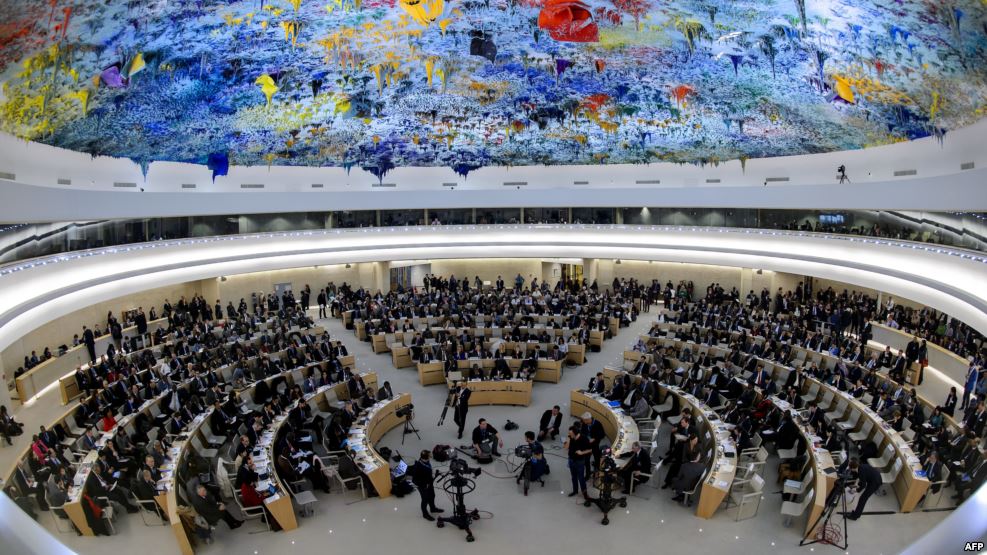The body has been accused of unfairly targeting Israel, and Trump aides are questioning its usefulness.
By NAHAL TOOSI and ELIANA JOHNSON
The Trump administration is considering pulling the United States out of the United Nations Human Rights Council, a body that has been accused of being biased against Israel and criticized for including abusive governments, according to two sources in regular contact with former and current U.S. officials.
No immediate withdrawal is expected ahead of the council’s next session, which starts Monday, but discussion of abandoning the council is likely to alarm international activists already worried that the United States will take a lower profile on global human rights issues under President Donald Trump.
A final decision on membership in the council would likely involve Secretary of State Rex Tillerson, as well as the U.S. ambassador to the United Nations, Nikki Haley, and of course the president himself.
A former State Department official briefed on the discussions said while the council’s targeting of Israel is likely part of the debate, there also are questions about its roster of members and doubts about its usefulness overall.
Countries known for human rights abuses, such as China and Saudi Arabia, have managed to snag seats on the 47-member council.
“There’s been a series of requests coming from the secretary of state’s office that suggests that he is questioning the value of the U.S. belonging to the Human Rights Council,” the former official said.
In a recent meeting with mid-level State Department officials, Tillerson expressed skepticism about the council, which has a number of powers, including the ability to establish panels that probe alleged human rights abuses.
A spokesman for Haley did not immediately respond to a request for comment Saturday. White House press aides also did not immediately offer comment.
State Department spokesman Mark Toner did not address whether U.S. membership on the council was being reconsidered, but said, “Our delegation will be fully involved in the work of the HRC session which starts Monday.”
The Human Rights Council was established in 2006. It replaced the U.N. Human Rights Commission, which had faced severe criticism because countries with poor rights records became members and prevented it from carrying out its mission to the fullest.
The Bush administration refused to join the new council, questioning whether it would be much different. But under President Barack Obama, the U.S. felt it was more useful to be part of the council and try to influence it from the inside, including by speaking out in support of Israel.
Still, supporters of Israel have accused the council of being overly focused on the Jewish-majority state, by pushing critical resolutions, for example.
Israel had a difficult relationship with the Obama administration, one that hit a new low late last year after Obama decided not to veto a U.N. Security Council resolution criticizing Israeli settlement construction.
Israeli Prime Minister Benjamin Netanyahu has made it clear he looks forward to working with Trump, while Haley also has been very public about America’s plans to shield Israel from critics at the United Nations.
The Human Rights Council’s membership is laced with political symbolism. Last year, Russia lost its seat on the body after a vote by the U.N. General Assembly, apparently due to international fury over Moscow’s role in the Syrian conflict.
poilitico.com
